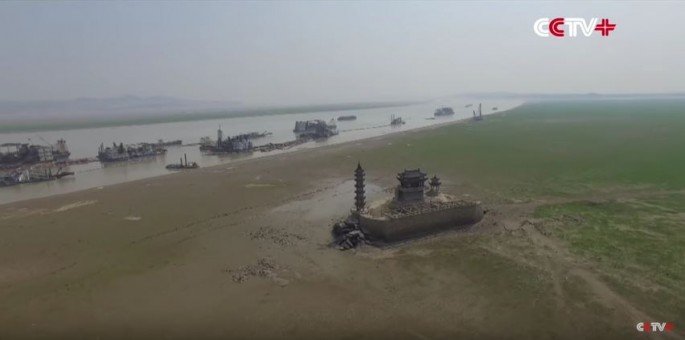Poyang, China's largest freshwater lake, is facing serious threat as it shrinks from drought. As time runs out, no consensus has been made on how to save it.
During the wet season, the freshwater lake can expand to about three times the size of the U.S. state of Los Angeles.
Home to the several critically endangered species such as the rare Yangtze finless porpoise and serving as a refuge for migratory birds such as endangered Siberian crane, Poyang plays an important role in the survival of these species.
But with the continuing threat of global warming, Poyang is now struggling to survive. In the recent years, the average expanse of the lake has been in decline, and winter water levels have been sharply decreasing.
Mining and the construction of the Three Gorges Dam have also been pointed as possible causes for the lake's decline.
Despite being pointed as one of the culprits of the crime, China's Three Gorges Dam is planning to discharge more water to the downstream Poyang.
According to them, they will "take full advantage of its reserves from the flood season and gradually increase its compensation standard to downstream rivers during the dry season to alleviate the dam's impact on Poyang Lake and Dongting Lake Regions."
Meanwhile, the local government is proposing its own solution. It plans to build a 10,000-foot sluice gate across the natural channel that connects Poyang and Yangtze, which according to the government would keep more water inside the lake during winter.
Aside from alleviating the effects of the drought, the government's report said that the sluice gate would help stabilize the drinking water supply and promote shipping on the lake.
Costing an estimated $1.9 billion, the Poyang Lake Water Conservancy Project has faced criticism from environmental activists and scientific experts, claiming that the project might further aggravate the destruction of the environment.
With time running out, it is important that the government, scientific community and other concerned parties come up with short and long-term solutions that shall help save China's largest freshwater lake for the future generations.



























